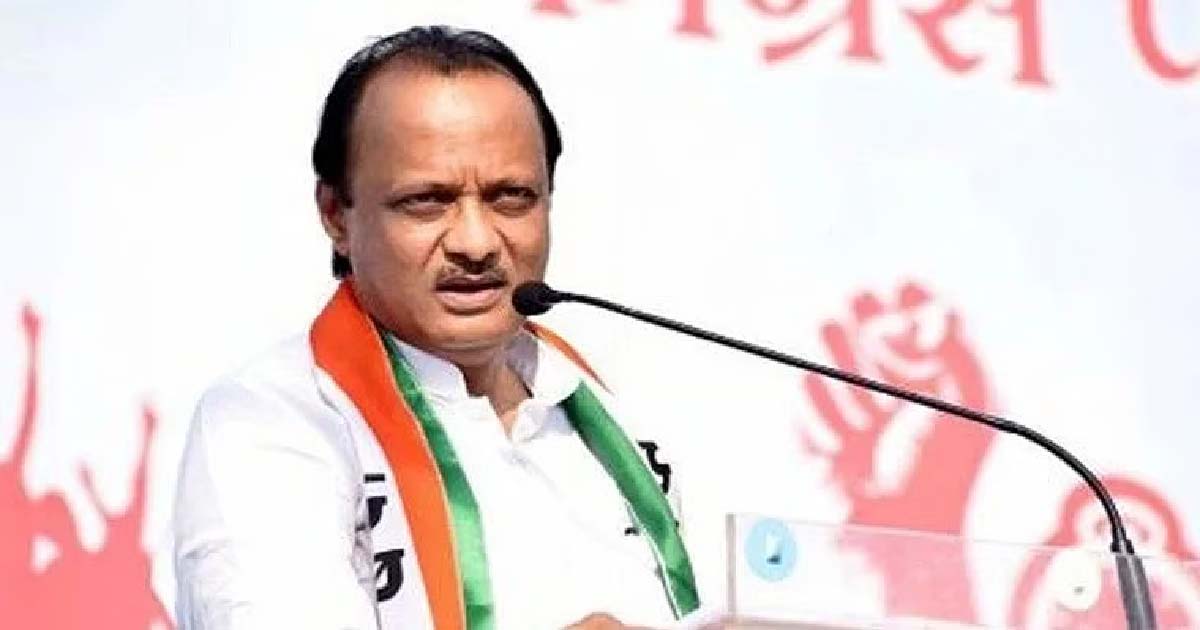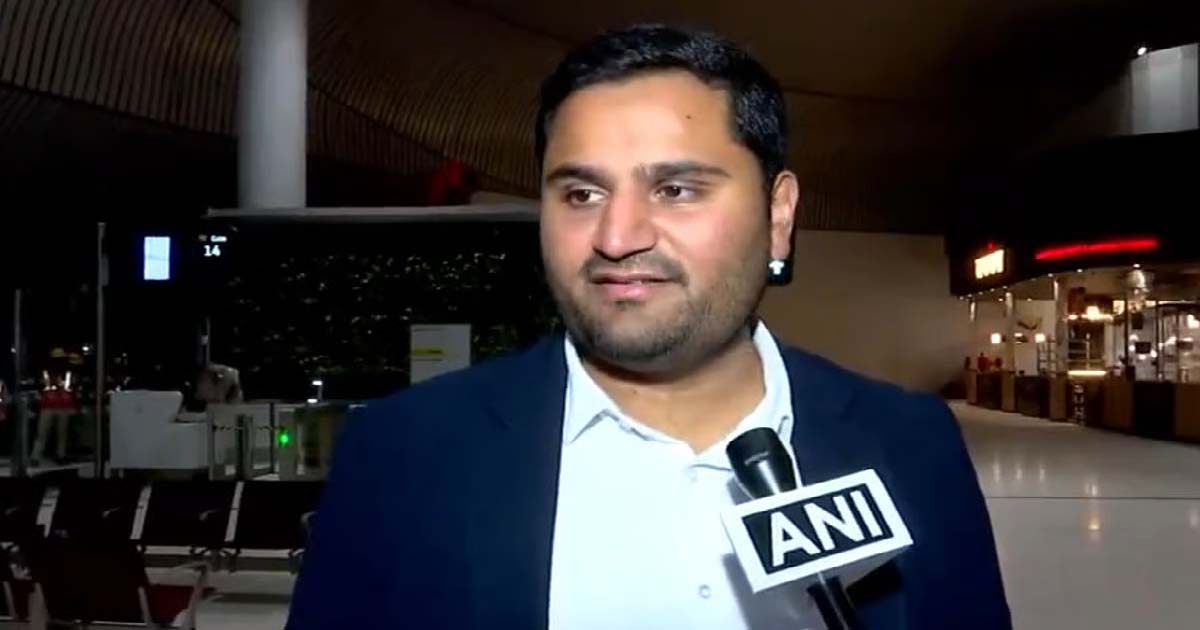National News
Hindi issue yet another attempt to divert attention from real problems, say WB leaders

Union Home Minister Amit Shah’s recent statement on Hindi at the meeting of Parliament’s Official Language Committee has taken the form of a full-blown political controversy.
Anti-BJP political leaders from West Bengal have described this Hindi language imposition attempt as not just an attempt to divide the Hindi-speaking and non-Hindi speaking people, but also a clandestine bid by the Union government to divert attention from burning issues like price rise etc.
IANS talked to a number of political leaders from West Bengal having affiliation to different political parties. Leaders of non-BJP parties like the Trinamool Congress, the CPI(M) and the Congress, who are always at loggerheads over different state-related issues, surprisingly talked on the same lines in slamming the Union home minister’s proposals.
Mainly two points came out from the arguments of the non-BJP leaders from West Bengal. The first point is a question from them about which particular form of the Hindi dialect does the Union home minister want to push as an alternative to English since Hindi dialects vary from state-to-state and often one single state has more than one Hindi dialect.
The second point that the non-BJP leaders raise is about raking up the Hindi issue to divert attention from burning issues like inflation, price rise and rising unemployment in the country.
The first person that IANS spoke to on this issue was the newly-elected Trinamool Congress Rajya Sabha member from West Bengal, Sushmita Dev.
The daughter of late heavyweight Congress leader and former Union minister, Santosh Mohan Dev, Sushmita had gone through varied linguistic cultures. A Bengali by birth and having pursued her academic and political careers mainly in Assam and the party in Tripura, she is now the Rajya Sabha member from West Bengal.
“This is somewhat an absurd proposition. This Hindi imposition attempt will bring an automatic divide between people speaking different regional languages. I am sure that the Union home minister’s attempt to project Hindi as an alternative to English will ultimately boil down to projecting Hindi as the official language as an alternative to other Indian regional languages. Every person is proud of speaking his or her own mother tongue. There is no harm if any individual learns Hindi voluntarily.
“But forcing Hindi in a linguistically diversified country like India is absurd. Secondly, the Union home minister should confirm which particular dialect of Hindi does he want to push as an alternative to English, since there are so many dialects of Hindi. Our party’s stand is very clear on this issue ad that is we will resit this Hindi-imposition at any cost,” she said.
Trinamool Congress MP Sukhendu Sekhar Roy said that this Hindi- imposition attempt is to fulfil the long standing agenda of the BJP and the RSS of “One nation-one language-one religion,” or “Hindi-Hindu-Hindustan,” This attempt will create tension in the country since there are bound to be protests from non-Hindi speaking people. This is totally unconstitutional and rather an attempt to divert attention from burning issues like inflation and rising unemployment throughout the country. The Trinamool Congress will resist it at any cost, he said.
Almost echoing Deb and Roy, All-India Congress Committee (AICC) member from West Bengal, Subhankar Sarkar, said that Amit Shah is projecting juggled statistics to mislead the people on this issue.
“He is claiming that almost 70 per cent of the Union cabinet communiques are made in Hindi. But that cannot be a valid reason for this Hindi-position attempt. As per the latest statistics, 47 per cent of the country’s population speaks in different dialects of Hindi, while the remaining 53 per cent speak in other Indian languages.
“So why impose a language spoken by 47 per cent of the population on the remaining 53 per cent. Secondly, the Union home minister should come clear on which dialect of Hindi he wants to promote as the official language as an alternative to English.
“Actually, these are nothing but tactics to divert attention from burning issues like price rise and unemployment. The current Union government is playing this attention-diversion tactics every time burning issues erupt. The latest example is the Union government’s promotion of the movie, ‘The Kashmir Files’,” Sarkar told IANS.
The opinion expressed to IANS by the CPI(M) central committee member and former leader of the Left Parties in the West Bengal assembly Sujan Chakraborty was no different.
“This is a long standing agenda of the BJP and the RSS that the current Union government is trying to rake up. But this will be against the spirit of ‘Unity in diversity’. This is bound to create a rift between the Hindi-speaking and non Hindi-speaking population of the country. This is yet another attempt to divert attention from issues bothering the common people every day,” Chakraborty said.
Understanding that this was a sensitive issue concerning Bengal’s sentiment with Bengali as its language, BJP spokesman in West Bengal Shamik Bhattacharya was extremely cautious about giving his reaction.
“It has become a habit of the Congress, the CPI(M) and the Trinamool Congress to oppose and politicise every proposal and initiative of the Union government. The Union home minister has just mooted a proposal based on some realities. I request the opposition leaders to be aware of the country’s realities before politicizing any issue,” he said.
National News
Maharashtra Deputy CM Ajit Pawar-Led NCP To Consider Solo Run In Thane As Allies Exclude It From Seat Talks

Thane: The Ajit Pawar-led NCP on Tuesday said it has kept open the option to contest the upcoming Thane municipal council elections separately as it was being kept out of the seat-sharing discussions by its allies in Mahayuti.
Nationalist Congress Party spokesperson Anand Paranjape claimed that while local leaders of the BJP and Shiv Sena have already initiated talks to finalise seat sharing in the TMC polls, the NCP has not been invited for these deliberations.
“Even though meetings of the alliance partners are underway, the NCP has not been invited. Therefore, we have begun preparations to contest the elections independently,” he said.
Our Thane district president, Najeeb Mulla, has not been contacted by either the BJP or the Shiv Sena, Paranjape claimed.
He said the NCP would declare its seat expectations only after being formally invited to the alliance talks.
He said 380 aspirants have been interviewed over the past two days.
“If the NCP is offered respectable representation in the alliance for the Thane Municipal Corporation, we are ready to contest together. Otherwise, the NCP is fully prepared to contest all 131 seats on its own,” he added.
Paranjape said the NCP favours contesting as part of the grand alliance wherever possible, but local tie-ups or independent contests would also be considered if necessary.
Referring to the recent elections to 288 municipal councils and nagar panchayats, Paranjape said mayors from the grand alliance of BJP, Shiv Sena, and NCP were elected in around 215 bodies.
“People of Maharashtra have reaffirmed their faith in the Mahayuti government led by Chief Minister Devendra Fadnavis and Deputy Chief Ministers Ajit Pawar and Eknath Shinde,” he added.
The long-awaited polls to 29 municipal corporations in Maharashtra, including cash-rich Mumbai, will be held on January 15, and votes will be counted on the following day.
Crime
Delhi Police arrest female drug peddler, seize ganja and cash

New Delhi, Dec 23: In a major boost to the Centre’s ‘Drug-Free India’ campaign, Delhi Police have arrested a female drug peddler in Nihal Vihar and recovered 341 grams of ganja along with Rs 3.72 lakh in cash, suspected to be proceeds from the sale of narcotics, officials said on Tuesday.
According to Delhi Police, the action was carried out by a patrolling team of Police Station Nihal Vihar on December 20, following specific directions from the Deputy Commissioner of Police, Outer District, to maintain heightened vigilance against drug trafficking.
The team, comprising ASI Arvind, Woman Head Constable Yogita and Constable Sanjeet, was on routine patrol in the Adhyapak Nagar area when they noticed a suspicious woman standing near a house close to Pari Garden with a brown-coloured carry bag.
Police said that as soon as the woman noticed the patrol team, the crowd gathered around her dispersed, and she attempted to flee.
“On sensing the police staff, the crowd dispersed immediately, and the female carrying the brown-coloured carry bag also attempted to flee, but the vigilant team swiftly chased and apprehended her on the spot,” the police said in its press note.
Upon weighing, the contraband was found to be 341 grams of ganja. A total sum of Rs 3,72,830 was also recovered, which police believe to be proceeds from the illegal sale of narcotics.
The seized drugs and cash were confiscated on the spot following due legal procedures.
Subsequently, a case was registered at Police Station Nihal Vihar vide FIR No. 960/2025 under Section 20(b)(ii)A of the Narcotic Drugs and Psychotropic Substances (NDPS) Act. The accused woman was formally arrested in the case.
Further verification revealed that the accused has a criminal history and was previously involved in more than five cases under the Delhi Excise Act, police said.
“The Outer District police remain committed to eliminating narcotics-related crimes and safeguarding the community,” said DCP Sachin Sharma.
National News
‘Stolen Symbol, Hollow Claim’: Shiv Sena (UBT) Attacks Maharashtra Deputy CM Eknath Shinde’s ‘Real Sena’ Assertion After Local Body Polls

Mumbai: The Shiv Sena Uddhav Balasaheb Thackeray (UBT) on Tuesday attacked Deputy Chief Minister and Shiv Sena chief Eknath Shinde over his claim that Maharashtra local body polls have finally settled the debate over the “real” Shiv Sena.
In a scathing editorial in the party’s mouthpiece, ‘Saamana’, the Thackeray camp claimed, “The liars say, ‘Our Shiv Sena is real!’ But what is real and what is fake – the common people of the state recognise this. Those who dedicated their victory to Modi-Shah’s feet, the symbol ‘Shiv Sena’ does not suit those thieves. These same Modi-Shah stole the bow and arrow and handed it over to eight traitors in Maharashtra. The theft of Lok Sabha, Vidhan Sabha and local body elections has taken the form of ‘yours, mine, theirs’. The picture ahead will be different – we have no doubt about this.”
According to the editorial, Eknath Shinde has claimed credit for the work shown by the real Shiv Sena people. This is a hollow credit. His party’s claim of solid work in Lok Sabha, Vidhan Sabha and now local body elections is hollow. “Originally, the name ‘Shiv Sena’ and the symbol bow and arrow were obtained through Amit Shah’s pressure. The merit of the bow and arrow is significant, and Balasaheb Thackeray, the Shiv Sena chief, had established the ‘bow and arrow’ in every household. These ‘merits’ have been stolen and the real Shiv Sena is being talked about,” said the editorial.
It further stated that the dispute between Shiv Sena and the bow and arrow is still pending in the Supreme Court. The Supreme Court has given six months’ time for the Election Commission to make a decision. “Dates are not being set there, but after 40 MLAs crossed over to the other side and the decision was made according to law and constitution, Shiv Sena and bow and arrow are encouraging a decision on whose symbol it is!” the editorial said.
The Thackeray camp said that despite the electoral successes of the Shinde-led Shiv Sena, legal disputes regarding the party’s “real” status and official symbols remain unresolved. It said, “The Supreme Court has scheduled a final hearing for January 21, 2026, to address the symbol dispute between the Uddhav Thackeray and Eknath Shinde factions. A similar hearing for the NCP symbol dispute is set for January 22, 2026. The year ends with political parties shifting focus toward the Brihanmumbai Municipal Corporation (BMC) elections, which are slated for January 15.” The editorial has even questioned the timing of the hearing in the court.
The Uddhav Thackeray-led Shiv Sena alleged, “The results of local body elections are bought and sold through auction. There is no integrity or transparency found anywhere in these results. The ruling party has acquired the art of buying the machinery and voters, and people like Amit Shah kindly make them win elections by stealing the Shiv Sena and bow and arrow. As Chief Minister Devendra Fadnavis vows to transform the face of the state following these results, the opposition remains defiant. They describe the current political state as one of ‘looting and deception’ and express confidence that the political picture in Maharashtra will shift in the future,” said the editorial.
-

 Crime3 years ago
Crime3 years agoClass 10 student jumps to death in Jaipur
-

 Maharashtra1 year ago
Maharashtra1 year agoMumbai Local Train Update: Central Railway’s New Timetable Comes Into Effect; Check Full List Of Revised Timings & Stations
-

 Maharashtra1 year ago
Maharashtra1 year agoMumbai To Go Toll-Free Tonight! Maharashtra Govt Announces Complete Toll Waiver For Light Motor Vehicles At All 5 Entry Points Of City
-

 Maharashtra1 year ago
Maharashtra1 year agoFalse photo of Imtiaz Jaleel’s rally, exposing the fooling conspiracy
-

 National News1 year ago
National News1 year agoMinistry of Railways rolls out Special Drive 4.0 with focus on digitisation, cleanliness, inclusiveness and grievance redressal
-

 Maharashtra1 year ago
Maharashtra1 year agoMaharashtra Elections 2024: Mumbai Metro & BEST Services Extended Till Midnight On Voting Day
-

 National News1 year ago
National News1 year agoJ&K: 4 Jawans Killed, 28 Injured After Bus Carrying BSF Personnel For Poll Duty Falls Into Gorge In Budgam; Terrifying Visuals Surface
-

 Crime1 year ago
Crime1 year agoBaba Siddique Murder: Mumbai Police Unable To Get Lawrence Bishnoi Custody Due To Home Ministry Order, Says Report












